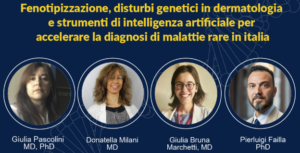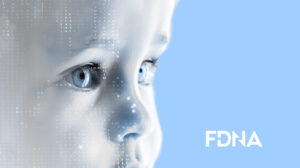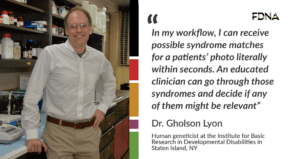Change in healthcare comes in many forms. Some say it’s legislature. Some say it’s technology. Some will cite time and patience–but those with an inside view on rare disease advocacy know that the driving force behind change usually comes in the shape of a mother who has just been told her child’s life will never be a healthy one.
At the Genomics Collaborative, we know that designing the future of health takes more than just great technology and innovation, it takes people with passion and these moms have it in spades.
There is a strong community of healthcare advocates working on projects in diagnostic dilemmas, legislative issues, care and support resources, and awareness. The backbone of this community is led by parents on a mission, unrelenting in their fight to ensure that other children won’t have to struggle as theirs have had to.
Today we’re recognizing just a few advocacy warriors in a collection of many who are making change for patients and families everywhere.
In part one of our two-part series, meet five “Moms on a Mission” for rare and undiagnosed diseases.

Name: Rene King
Rare Connection: In 2001, Rene King’s newborn daughter Rikki was diagnosed with Kabuki Syndrome, a rare and complex genetic disorder. In 2013, Rene & Rikki first launched Operation Kabuki Christmas (OKC). OKC quickly evolved into All Things Kabuki (ATK), a much broader awareness campaign with a focus on families affected by Kabuki.
Mission: Following her daughter’s diagnosis, Rene King observed a lack of resources and awareness surrounding Kabuki Syndrome. After connecting with other parents, she launched All Things Kabuki to raise awareness and provide support to other families navigating life with the rare condition. The organization hosts conferences, manages online support groups, shares educational resources in multiple languages, and is currently working with major research institutions and FDNA’s Genomics Collaborative to learn more about the condition.
Learn more about her work here: https://www.allthingskabuki.org/home and on Facebook.

Name: Neena Nizar
Rare Connection: Patient and parent of two boys with Jansen’s Metaphyseal Chondrodysplasia. Dr. Nizar became the Founder and Executive Director of The Jansen’s Foundation, a non-profit that seeks to find a cure for the rare, progressive form of skeletal dysplasia. A cure for Jansen’s could potentially unlock cures for osteoporosis, osteoarthritis, and hypercalcemia-related diseases.
Mission: Named 2018’s Nebraska Mother of the Year, Dr. Nizar’s efforts to find a cure for her sons and children with rare diseases like them have been her primary focus for the last several years. She and her husband, Adam, flew their boys around the world searching for experts in muscular-skeletal development. Today she works alongside Harvard researchers, NIH, and the FDA to bring about the first-ever treatment for Jansen’s Disease. She collaborates with multiple organizations, writes for publications like The Mighty, and continues to fight for the highest quality of life for her sons.
Learn more about her work here: https://www.thejansensfoundation.org & on twitter.

Name: Gina Szajnuk (Zanik)
Rare Connection: An undiagnosed patient and mother of three undiagnosed children, Szajnuk is the Co-Founder and Executive Director of RUN (Rare and Undiagnosed Network)
Mission: Szajnuk broke through impossible barriers to secure multiple rounds of genetic sequencing for her entire family to try to solve the mystery. When they failed to pinpoint a gene, Szajnuk had to brainstorm ways for her family to live with this “new normal” while still actively pursuing more testing. She founded RUN (Rare and Undiagnosed Network) a non-profit that provides resources for undiagnosed patients and seeks to raise awareness about the many medical mysteries out there that remain unsolved.
Learn more about her work here: https://rareundiagnosed.org and on Twitter.

Name: Eden Lord
Rare Connection: Parent to a rare and chronically ill daughter, Lord has been involved in numerous advocacy efforts in resources, research, legislation, and community events.
Mission: Since her daughter’s rare disease diagnosis in 2009, Eden Lord has been an active advocate in rare disease awareness and legislation. She has lobbied in her district and in DC for RDLA lobby days, served as the Kansas state chair for the CARES foundation, attended the Global Genes conference, and successfully lobbied for the administration of patient-carried meds in Kansas and Missouri. She has organized rare disease week awareness events in Topeka with NORD, and she is the Executive Director for the Cambria Lord Foundation. She is the Co-Founder of My City Med, along with her husband Jeff, and the creator of the first entirely virtual rare disease conference, The Rare Fair.
Learn more about her work here: www.therarefair.com http://cambrialordfoundation.org and on twitter.

Name: Carri Levy
Rare Connection: A patient and parent to a rare and undiagnosed daughter, Levy created the show Behind the Mystery which shines a light on rare and genetic conditions through educational programming on Lifetime TV.
Mission: Levy hopes to bring mainstream attention to rare conditions in an effort to improve awareness among undiagnosed patients and enlighten the communities surrounding diagnosed patients on what a diagnosis, treatment, and daily life look like for these patients. She hosts the Rare Talk discussion group on LinkedIn and was named one of Global Genes 2013 Rare Champions of Hope.
Learn more about her work here: https://thebalancingact.com/category/behind-the-mystery/ and on LinkedIn.
Stay tuned for part II coming soon!



